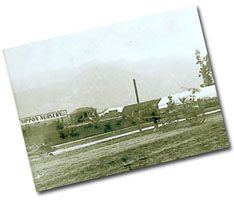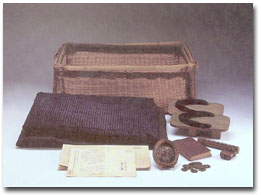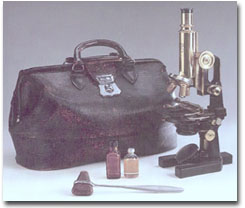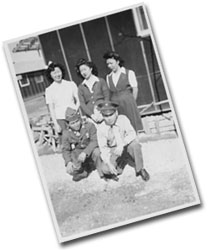| "After the war we were allowed to come back to Los Angeles where we were greeted by the
Gimovsky's at our door with keys in hand. It was like walking back in to time! Of course nothing was the same. Most of
our friends and relatives had a harder time returning to California and ended up in places like Chicago, Detroit, and New
Jersey first. We even knew people who were sent to Tule Lake that were forced to repatriate to Japan! Most who were able to
come back to California no longer had homes or jobs. The government set up trailer camps in Burbank for many of the
resettlers."
"Mother carried so much bitterness and sadness with her after coming home. She was happy to be among her friends again,
but many of them had moved away and some of the new neighbors viewed us with suspicion and distrust. Father was able to
resume bu siness, but it was difficult starting over again at 55. He had hoped to turn the business over to Robert and Bill,
but Robert was gone and Bill chose to pursue other interests. Business was never as good as it was before the war, so he sold
the nursery in 1955 to his nephew Charlie, Hiro's oldest son. Nothing turned out the way they had dreamed they would."
"Of course, things got better over time. James set up his medical practice in Gardena and kept an eye on mother and dad. I met your father and we had our own family—same with your Aunt Mary and Uncle Bill. Mother just chose not to dwell on
the past even though it always haunted her. Even after mother and dad were allowed to become United States citizens and the
government apologized for the camps, she just refused to ever talk about it again." | 



